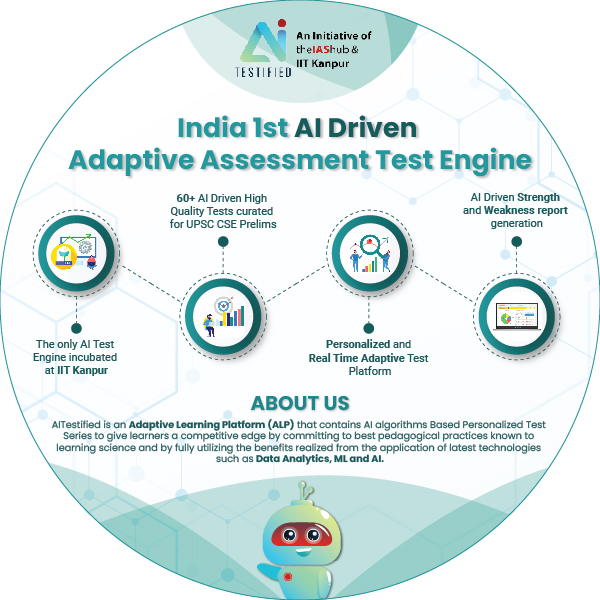Q. Discuss the contribution of the Council of Science and Industrial Research (CSIR) to Indian Agriculture and Health sector. (Answer in 150 words)
06 Oct, 2022
GS III
Daily Answer Writing 2022-23 ( Upgrade)
Modal Answer
Modal Answer
Starting with the indelible ink, which is the hallmark of India’s democratic fabric, CSIR has left an indelible mark on every sphere of life, acting as a catalyst of sustainable socio-economic change through application of science & technology.
While CSIR covers a wide spectrum of S&T – IT, space physics, oceanography, mining, environment etc – it has made notable contributions to the agriculture & health sector.
Contribution in agriculture sector
- Value added Agriculture: Medicinal and aromatic plants for eg. India leads globally in Menthol Mint production.
- Mechanisation of agriculture: Swaraj tractor in Punjab led to commercialisation of agriculture.
- Disease resistant crops: bacterial blight resistance-Samba Mahauri rice variety, White-fly resistant Cotton variety
- Contamination free crops: Rice Cultivar (Muktashree) for Arsenic Contaminated Areas.
- Post-harvest technologies: Ginger Processing Technology comprising of the Rotary Drum Washer being used in the north-eastern states.
- Food processing: R& D in nutrition, Food-fermentation-flavour technology, bio engineering, packaging etc. Eg. processing baby food from buffalo milk with excellent digestibility.
- Biotechnological innovations: CSIR created history and made bamboo flowering within weeks (otherwise took 7-100 years) using tissue culture technologies.
- Animal health: JD Vaccine for Farm Animals (sheep, Cow, Buffalo etc) to immunize & increase milk/meat production.
Contribution in Healthcare sector:
- Disease diagnosis: Feluda, an affordable & easy to use rapid diagnostic kit for COVID-19 (compared to PCR).
- Affordable drugs: cheaper processes for manufacturing anti-HIV & other drugs (including to 3rd world countries).
- Facilitating new drug discovery: Through “Geno Cluster”: a software tool.
- Women health: Saheli is the first non-steroidal oral contraceptive pill.
- Preserving Traditional knowledge based medicine: in form of Traditional Knowledge Digital Library (TKDL).
- Vinca rosea (anticancer benefits) is not attacked by insects or eaten by animals & can be easily collected.
- Countering vector borne diseases:g. Anti-malarial drug Arteether, now exported to over 30 countries.
- Non-communicable diseases: Ayurvedic anti-diabetic medicine, BGR-34 for Type II diabetes patients.
- Addressing Genetic disorders: Eg. GOMED platform
- Nutritional security: Ksheer-Scanner’ technology to detect milk adulteration, double fortified salt etc
In the light of new healthcare and agricultural challenges, CSIR needs to reinvent itself and turn futuristic while pursuing the science of the highest order, making India a “Global Hub of Innovation”.
Please login to upload your copy.
Uploaded Copies
No copies found.

